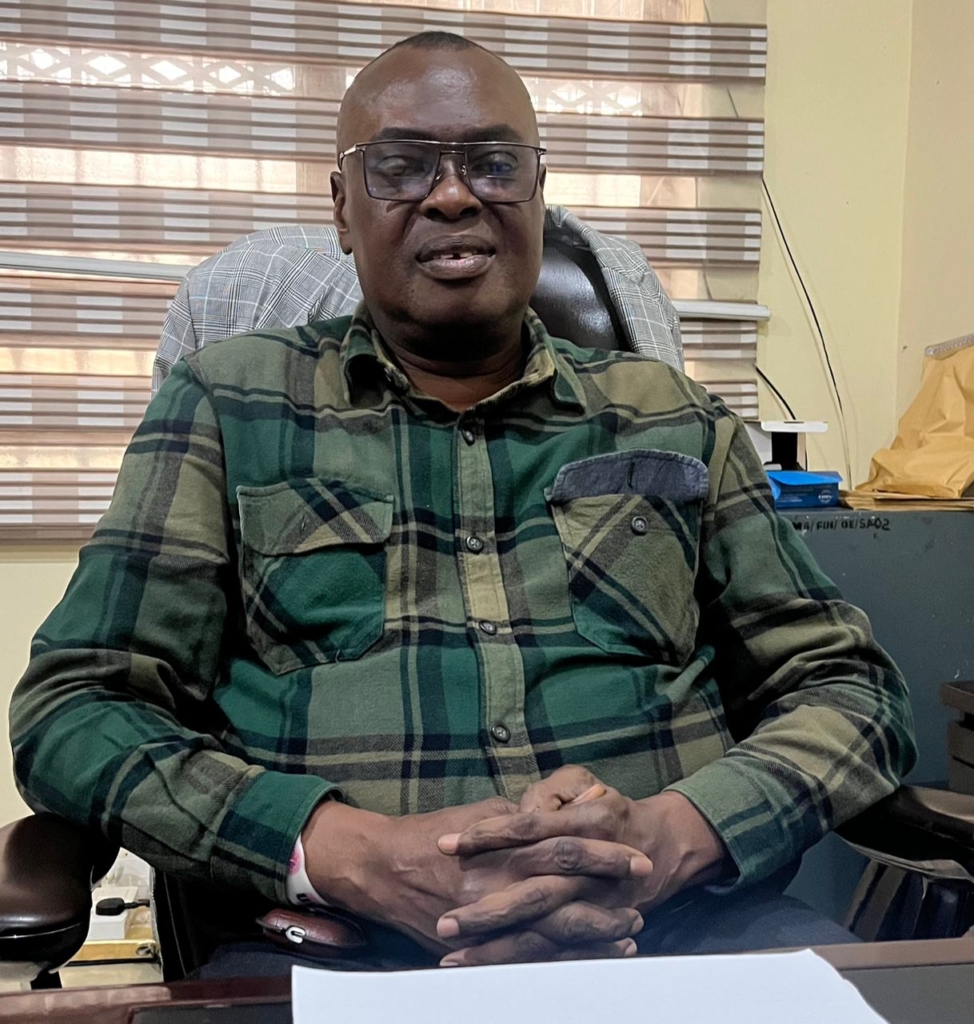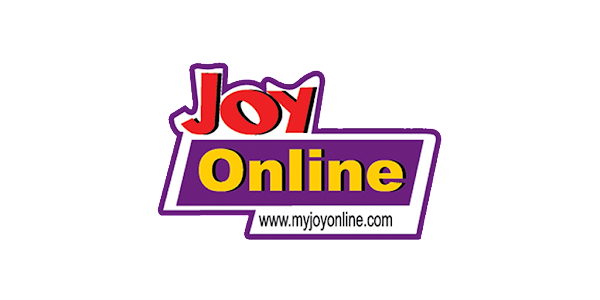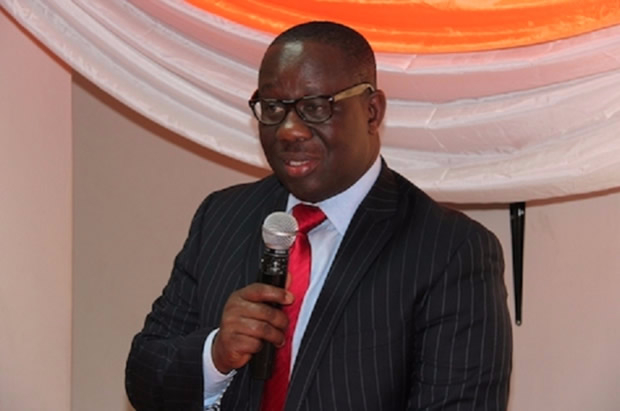ARTICLE AD
In September 2009, the pursuit to transform public financial management and better keep the public ‘purse’ in Ghana, birthed the Ghana Integrated Financial Management Information System (GIFMIS).
With funding from the World Bank, the UK’s Department for International Development, the European Commission and the Danish International Development Agency, the new ‘baby’ initiative was championed by the Controller and Accountant General's Department (CAGD) and Ministry of Finance (MoF).
The GIFMIS uses the Enterprise Resource Plan (ERP), a centralized electronic platform, to aid the consolidation of information and processing of financial activities on the consolidated fund, among player national institutions.
Transactions from Ministries, Departments and Agencies (MDAs), and treasury to government suppliers have been made easier with an electronic fund transfer.
Such a data exchange system within the state agencies is a key component of the Digital Public Infrastructure (DPI).
How GIFMIS works
The Ghana Integrated Financial Management Information System (GIFMIS) has emerged as an ideal tool of hope in public financial management.
It is designed to streamline and enhance all processes of budget, accounting, financial reporting, and beyond.
The software platform is used by key finance players of MDAs from the finance departments, accounting and procurement units.
The users enter their respective financial transactions which may include their revenues, expenditures and budget data into the GIFMIS platform.
The system supports the creation of comprehensive budgets, allowing for traceable tracking against actual expenditures.
The Kumasi Metropolitan Assembly was among the first seven districts selected to embark on the GIRMIS journey.
The Metro Finance Officer, Daniels Owusu, recounts his encounter with the system.
 Metro Finance Officer, Daniels Owusu
Metro Finance Officer, Daniels Owusu
“I am very familiar with the system, because my district was among the piloting districts. The process and encounter with GIFMIS, starts from purchasing to payment.
“At first, we were carrying out activities randomly. But after the introduction, the national budget is loaded, after it is read and publicized to be compiled by assemblies,” he said.
The integrated electronic features on the GIFMIS ensures consistency with budget preparation, budget execution, financial controls and prevention of budget overruns.
Public sector workers are bearing fruit of a timely and efficient wage system, such as the public sector payroll system which is also integrated to manage the public sector wage bill.
Government assets are loaded on the system to effect tracking and proper management of public properties.
Implementation institutions
The MDAs, the Public Service Commission, Ghana Statistical Service, Office of the Head of Civil Service, Ghana Education Service, Local Government Secretariat, Ghana Health Service, Ministry of Food and Agriculture, Ghana Police Service and Ghana Prisons Service are implementation institutions.
The governing and overseeing arm include the Ministry of Finance (MoF), Controller and Accountant General’s Department (CAGD), Public Enterprises, Ghana Revenue Authority (GRA) and Bank of Ghana (BoG).
The deployment process was piloted at seven MMDAs, thus, the Accra Metropolitan Assembly, Tema Metropolitan Assembly, Kumasi Metropolitan Assembly, Cape coast Metropolitan Assembly, Ho Municipal Assembly, Tarkwa-Nsuaem Municipal Assembly, and the Obuasi Municipal Assembly.
The Successes
According to the former finance minister, Dr. Mohammed Amin Adam, as of June 2024, GH¢56.4 billion was collected through the GIFMIS platform.
This amount symbolizes a milestone of a robust system as it represents a 34.6% increment from the previous year.
“As at the end of June, 140 public institutions, including GRA, had gone live and received payments through the platform [GIFMIS] totaling GH¢56.4billion, an increase of 34.6 percent compared to the same period last year,” he said.
In 2017, 60 internally generated funds (IGF) generating institutions, had been enrolled and using GIFMIS.
However, implementation scale and coverage of the system has seen a rapid enrollment, with 287 institutions relying on IGF.
“In line with commitment to ensuring full disclosure of retained internal generated funds by public institutions, government has deployed theGhana.Gov platform to over 1,500 public institutions and also rolled out the Ghana Integrated Financial Management Information System (GIFMIS) to 287 IGF-reliant public institutions,” Dr. Adam said.
The Kumasi Metro Finance Officer, Daniels Owusu, disclosed that the system has improved reporting tasks of his office, transparency and guided his expenditure.
The platform generates various reports for internal use, compliance, and public disclosure.
“GIFMIS has helped with reporting, budgeting, etc. With a click of a button, you know the purchase you have made, you know the revenue you have received because they are all entered into the system. And it tracks and checks your sending, especially spending outside your budget,” he said.
The problem
The GIFMIS has replaced the manual system with a centralized integrated ICT assisted financial system.
Aside from the overhauling of the manual system into electronic, responsibilities of the key users have been altered, same as infrastructures of financial management.
The Kumasi Metropolitan Assembly finance office is decrying the network setbacks, impeding progress and timely usage of the platform.
“At the local level we use our internet, GIFMIS runs on the national networks provided by the National Information Technology Agency – NITA. At times you try to work and the system is down. And after some time, you cannot make payments because payment time is limited to 2pm. After 2pm, payments cannot be effected,” Daniels Owusu disclosed.
On the back of this, users of the platform, including finance officers, accountants and procurement units of ministries, public departments are now required to possess technical skills and human resource capacity to navigate the platform to aid their daily activities.
Dr. Evans Nunoo, an economist and financial analyst from Ghana, who is interested in the GIFMIS development said building capacities of those handling the platform is key.
“Developing capacities and the strength of finance offices is paramount, especially in very technical and demanding areas like GIFMIS operation. Even managing a small firm would need capacity building. So a big firm, or a national organization, obviously holds a bigger importance,” he said.
Meanwhile, overcoming human and staff capacity and addressing widespread ICT infrastructure inadequacies that impact is pivotal to the success and the efficiency of the system.
Adoption levels are being imparted as inadequate training is leaving some users rusty to catch up the system complexities. This is coupled with inadequacy of ICT infrastructure.
Mr. Daniels Owusu believes the process and operation of GIFMIS should not stall due to the absence of infrastructure.
“When GIFMIS was started, offices were built for every public institution for GIFMIS. Those who were not having such facilities were made to use the regional directorate of controller and accountant general so any user could sign on and work from there.
“But now it can be installed on your IT machine, provided you have a working network, you can operate, even from home. Because there should not be anything to stall or hinder the process,” he said.
Solutions
A consistent focus on an effective GIFMIS could revolutionize Ghana's fiscal landscape by ensuring expenditures correspond to budgeted plans to cut down deficits and improve timely public service delivery, and efficient use of public funds.
The GIFMIS handlers are admonished to improve capacities of public staff to effectively deliver their mandate.
Budget preparation and coding, processing payment requests, generating financial reports, and compliance with financial regulations are notable know-hows expected of users of the GIFMIS platform.
Economist, Dr. Evans Nunoo is suggesting technical and cyber training strategies for the sustainability, efficiency of the platform and improved adoption of the platform.
“We had implemented some systems earlier like the budget plan and public health expenditure management system that failed. Given the nature of the GIFMIS platform, officers would need some knowledge in IT to strengthen their knowledge in information technology, to strengthen the data record.
“Handling is sensitive information will require training them on cyber security and data management. The officers also should have some basic analytics in software development and customization,” he said.
Investment in ICT infrastructure across all levels of government will ensure efficient and reliable access and functionality of GIFMIS.
This includes improving internet connectivity and providing adequate hardware.
Metro finance officer, Daniels Owusu is imploring the Controller and Accountant General's Department (CAGD) and Ministry of Finance (MoF) to seek alternative network provision for MDAs to bridge internet connectivity gaps.
“Other network providers like star link can be used to complement the national network. Such that when there is a network jam, officers and users of the system can switch,” he said.
Mr. Owusu believes that system updates and flexibility will simplify processes and facilitate the reliable and efficient usage of the system.
“I believe the timeline for effecting payment could be revised. According to the Bank of Ghana, after 2pm, no payment can be effected. I believe, yes, you can work at any time even in the nights in the system. But you should also be able to make payment too.
“Because if the system is jammed through no fault of yours, and payments are not able to be made, I believe the payment timeline should be extended to cater for the lapses finance officers may face with the system,” he said.
Meanwhile, reforms highlight not only the usage of the platform, but also the legal framework, and tenets of the Ghana Integrated Financial Management Information System (GIFMIS).
Economist, Evans Nunoo believes that structural and administrative reforms should be embarked on to ensure the sustainability of the system.
“Many local assemblies may not even have internet facilities or computerized systems. Attention must be critically turned there. GIFMIS has more to do with the executive arm of government, however, I believe we could be looking at the legislative framework to get the legislature to play key roles in it, like developing legal backing to instill straight compliance.
“The program was fully, or mostly handled by donors and external consultants. We should make sure we are also looking at ways of using local experts so that they can own the process,” he said.
Addressing these shortcomings and implementing suggested improvements, GIFMIS can further enhance its role in transforming Ghana's public financial management into a model of efficiency, transparency, and accountability.

DISCLAIMER: The Views, Comments, Opinions, Contributions and Statements made by Readers and Contributors on this platform do not necessarily represent the views or policy of Multimedia Group Limited.

 
 
 
 
 
 
 
 
 

 3 hours ago
3
3 hours ago
3 

